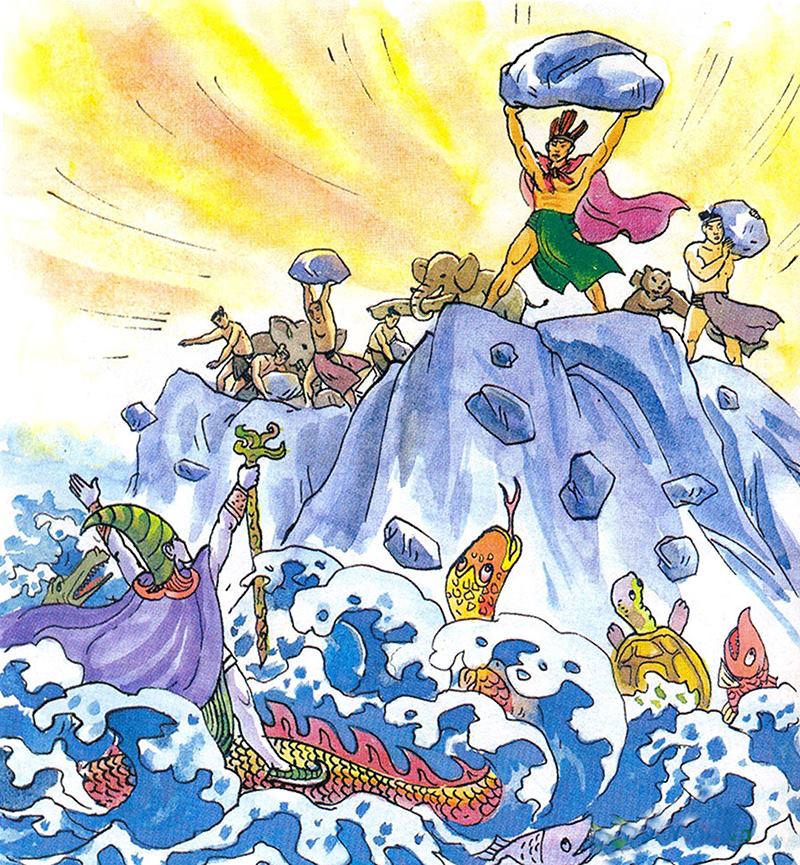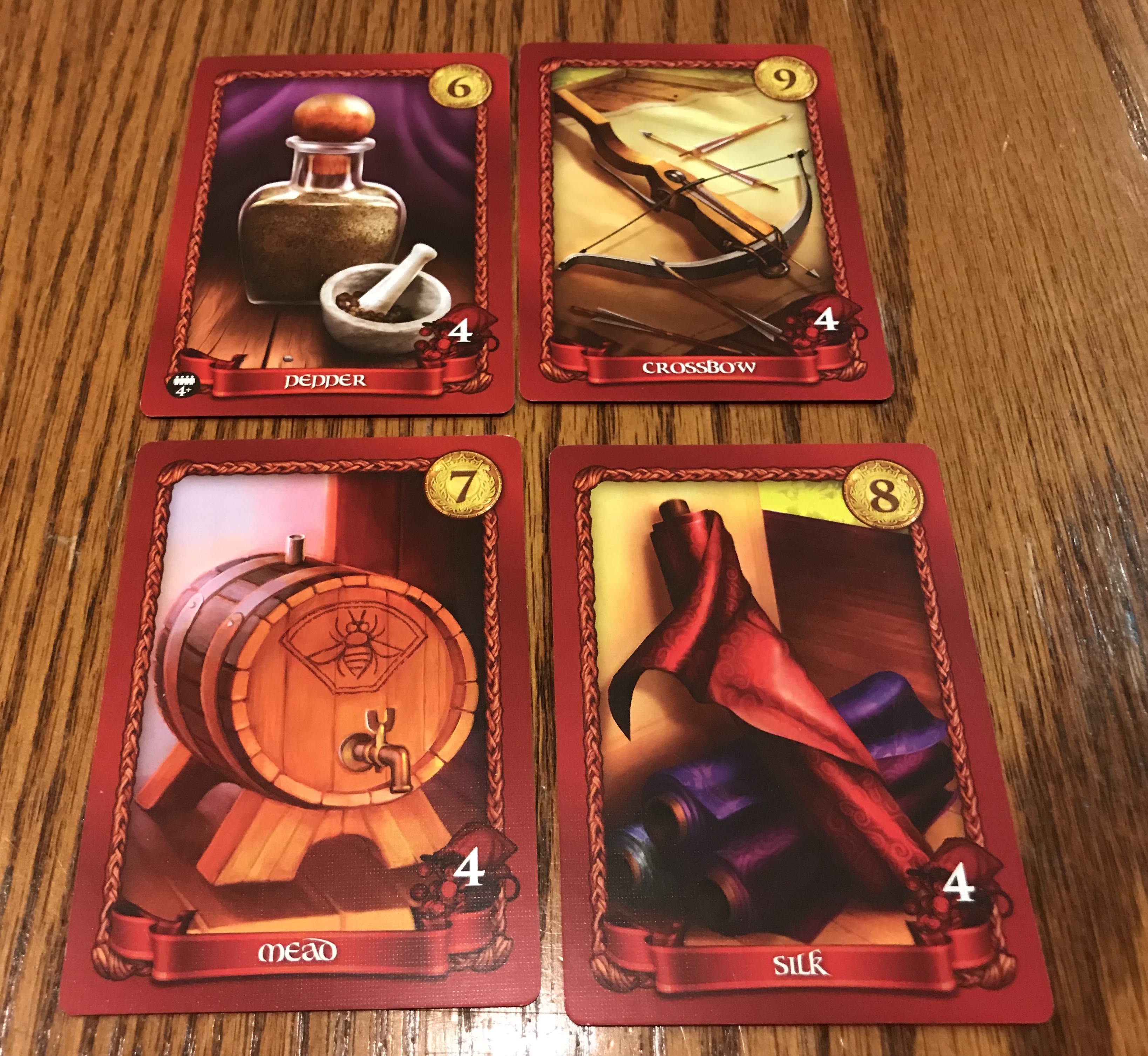

The bonuses for scoring highest or second highest in the different goods categories can be game changing. If there is still a tie, then the player with more contraband wins. If there is a tie, the player with the most legal goods wins. This includes 1) physical gold, 2) the total value of all goods cards that have been accumulated and 3) bonuses for having the 1st and 2nd highest amount of each legal good type. At this point, the player with the highest amount of gold wins. The game ends once every player has been able to play as Sheriff for two rounds. The Sheriff token gets passed to the left, and every player now draws cards from the face-down decks until they have six cards in hand again. The Sheriff then confiscates the goods lied about and places them onto one of the discard piles. Penalties for contraband can be quite high. However, if you were caught lying, then you must pay the penalty for every good which you lied about. If you were telling the truth, you place your goods into you scoring area, and the Sheriff compensates you by paying the total penalty amount of all the goods in the bag. If the Sheriff chooses to inspect a bag, there can be two outcomes. These are now in the player’s possesion to be scored at the end of the game, or to be offered as bribes later. Legal goods are placed face up, and contraband face down at the top of their scoring card. Now, if a player’s bag was returned, they will place their goods onto their respective board spaces. This can all happen at once, but once the Sheriff makes a decision (by opening a bag, accepting a bribe, or handing the bag back), it is final. One can even bribe the Sheriff to look at other bags. These can have many forms: Gold, goods from your board, promises of future favors, etc. By threatening inspection, the Sheriff can solicit bribes from players. The Sheriff can choose to inspect, or threaten to inspect, any number of merchant bags.

Also, players cannot lie about the total number of cards. Players must declare only one legal good-type, even if there is a mix. Even so, there are still some restrictions and rules to be followed. Players will then go in turn order, just like the market phase, declaring to the Sheriff what they have in their bags. Zero or more than five is against the rules. Loading the Merchant BagĪll player will simultaneously and secretly load their merchant bags with strictly 1-to-5 goods. Once the player has chosen their cards, they place their discarded cards into one of the discard piles, in any order. You cannot pick up discarded cards after drawing any from the face-down decks. The key here is that if a player wants to draw from discard piles, it must be from the top and before any face-down cards are picked up. To do so, a player may discard up to five goods from his or her hand and draw that many from either of the face down decks or discard piles. Players will go clockwise starting with the player to the left of the Sheriff going to market.

The Sheriff participates in the final 2 (besides observing). These piles represent the market.Ī turn consists of five distinct phases. The rest of the goods are split into two separate decks face-down, of which then five cards are turned over into two discard piles. One player will be designated to start the game as a Sheriff. The game begins with everybody starting with six goods cards and 50 gold, as well as their merchant bag and scorecard. If you’re honest and have been needlessly harassed, you’ll receive compensation. Get caught smuggling illicit goods, and you will have to pay a fine. Some of these goods aren’t quite legal, and anything brought in must be cleared by the town’s Sheriff, who is represented by a different player each turn. Players spend the majority of their time competing to make the most money by bringing goods into the town of Nottingham.

Sheriff of Nottingham is a game of deception and calculation, not entirely unlike a game of Poker. In the game Sheriff of Nottingham, you get to play as one of these calculating traders to see just how good you might’ve been at that life. Merchants who sometimes risked their lives to smuggle in weapons and contraband for the people. Merchants who worked hard to bring more food to the starving townsfolk. Ordinary merchants, whose livelihood depended on delivering goods to towns governed by the very same villains and enemies of Robin Hood. Few stop and think, however, about how others may have played a part in this story. Nearly everyone has heard and romanticized the tale of Robin Hood, who stole from the tyrannical, corrupt nobility to give back to the poor.


 0 kommentar(er)
0 kommentar(er)
